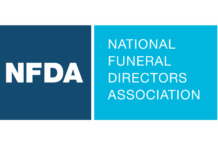By Leader Contributor Glenn H. Gould III, CEO of MKJ Marketing
I received an opportunity to speak at a recent state association meeting; my first since before the COVID pandemic, so nearly two years. It felt “normal”; a room full of funeral business owners and managers, no one socially distanced, and no masks in sight.
For a while, it seemed like we were back to normal, but with the rise of the delta variant, circumstances are rapidly changing.
For now, the economy is great, the stock market is booming, and the digital world continues to create new opportunities with cryptocurrency and non-fungible tokens (think of something as rare as a Mickey Mantle rookie season baseball card — only digital — that you purchase with cryptocurrency).
We are experiencing a very predictable rebound from a pandemic-forced shutdown. For 18 months, families stayed in their homes except for necessities; they didn’t spend much, so their savings accounts swelled with disposable income, and this is their chance to let loose. This has caused the economy to boom even greater than it did in the months leading up to the lockdown.
But there are downsides to this rebound; grocery stores are laying off excess labor employed when everyone was eating at home. The same with truck drivers that delivered online-purchased goods when we couldn’t shop in person. And the number of deaths is beginning to decline. We knew this would happen; it had to. Many of the people that died during the 18 months would have survived for years, so there have to be fewer deaths in the years moving forward. We’ll return to this later in the article.
Returning to “normal” will likely never happen, as the pandemic challenged us to look at our lives more objectively; some of what we considered “normal” is actually abnormal from a logical lifestyle perspective. Frankly, “normal” didn’t make a lot of sense.
Commuting to Work Versus Working from Home
Millions of jobs have been accomplished in our pajamas or workout clothes. If we have an idea worth pursuing or a project to launch, it’s not necessary to delay implementation for hours while dressing for work and spending the average 45 minutes in traffic. We just walk over to the computer and start working. The day of the week means a lot less to us when we work from home; what’s the difference between a Sunday afternoon versus a Thursday morning? If we have something to do, it gets done, regardless of the day.
Disruption to the Workforce
Many people have decided to drop out of the traditional workforce either from retirement or simply pursuing new opportunities that allow them not to work from home. They may earn less than their previous employment, but they are willing to make less to improve their quality of life. Because the economy has made a booming recovery, many people previously stuck in low-paying jobs have found new opportunities that pay better and offer better lifestyles. After all, working in a restaurant or hotel leaves a lot to be desired.
- Low pay
- Work schedules that demand you work when everyone else is playing
- No employer-provided benefits; employees often have to pay for parking
- No promotional opportunity
- For many people, physical limitations caused by age force associates into early retirement
Is there any wonder low-paying jobs are having difficulty finding workers? But what will this do to the restaurant industry? Fewer workers mean higher wages, which means fewer restaurants. Also, fewer office workers mean a smaller lunch rush. Fewer restaurants mean fewer jobs at a long line of restaurant industry vendors.
Changes for All Industries
Investors, both large and small, have been investing in office buildings, which generate their profits from leased office space. A recent visit to Los Angeles, with much of the country’s most expensive real estate, revealed huge vacancies even in the most expensive business districts. The same applies to Nashville and Florida cities of Clearwater, St. Petersburg, and Tampa, which causes me to assume this is a national phenomenon. Again, empty office space not generating profitable rents causes a ripple throughout the economy from unemployed janitors to layoffs at office supply companies.
The shutdown caused manufacturers worldwide to close in masse, causing shortages in everything from appliances and building supplies to automobiles and chemicals. Even the blockage of the Suez Canal has caused a ripple effect of back-ups that will take months to recover.
The success of Peloton and other in-home workout equipment will cause gym businesses to close, and the $39-per-month physical fitness livestreaming programs that accompany the home equipment will displace a lot of trainers.
With all of this happening in the economy, is it any wonder the unemployment rate has not declined and low-paying hospitality jobs are going unfilled? We will not return to normal but will create new norms that include pressure on low-wage, service employers to investors converting expensive office space and malls to low-rent warehouses for internet retailers.
Now, let’s return to the funeral industry. Both SCI and Batesville Casket had record years last year, as did thousands of independents. How many well-educated funeral directors will seek better different employment that offers career opportunities with better pay and benefits? How many funeral businesses will sell their businesses during the next three years as they suffer from the weight of a lower death rate and more cremation sales?
There will be opportunities for acquisitions and higher prices for cremation services as the number of competitors is diminished. The funeral industry’s growth and development have been stalled for generations because of too much competition and too many funeral homes. Fewer funeral homes will make life difficult for the state and national associations, but over time, the industry will grow stronger and smaller as firms stabilize their pricing for cremation and stop subsidizing their low cremation prices with profits from their traditional business.
Fewer, more profitable funeral businesses will allow employers to hold onto their associates who will deliver superior services.
Expecting a return to normal will only create frustration and disappointment. The world experienced a shock that makes it impossible for “things to return to normal.” But every shock creates new opportunities; look for them and participate in the development of new norms.








